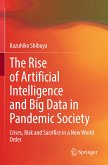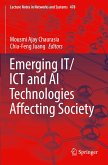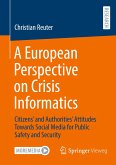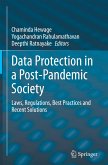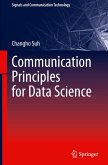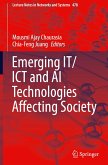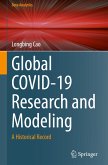This book presents a study of the COVID-19 pandemic using computational social scientific analysis that draws from, and employs, statistics and simulations. Combining approaches in crisis management, risk assessment and mathematical modelling, the work also draws from the philosophy of sacrifice and futurology. It makes an original contribution to the important issue of the stability of society by highlighting two significant factors: the COVID-19 crisis as a catalyst for change and the rise of AI and Big Data in managing society. It also emphasizes the nature and importance of sacrifices and the role of politics in the distribution of sacrifices. The book considers the treatment of AI and Big Data and their use to both "good" and "bad" ends, exposing the inevitability of these tools being used. Relevant to both policymakers and social scientists interested in the influence of AI and Big Data on the structure of society, the book re-evaluates the ways we think of lifestyles,economic systems and the balance of power in tandem with digital transformation.


